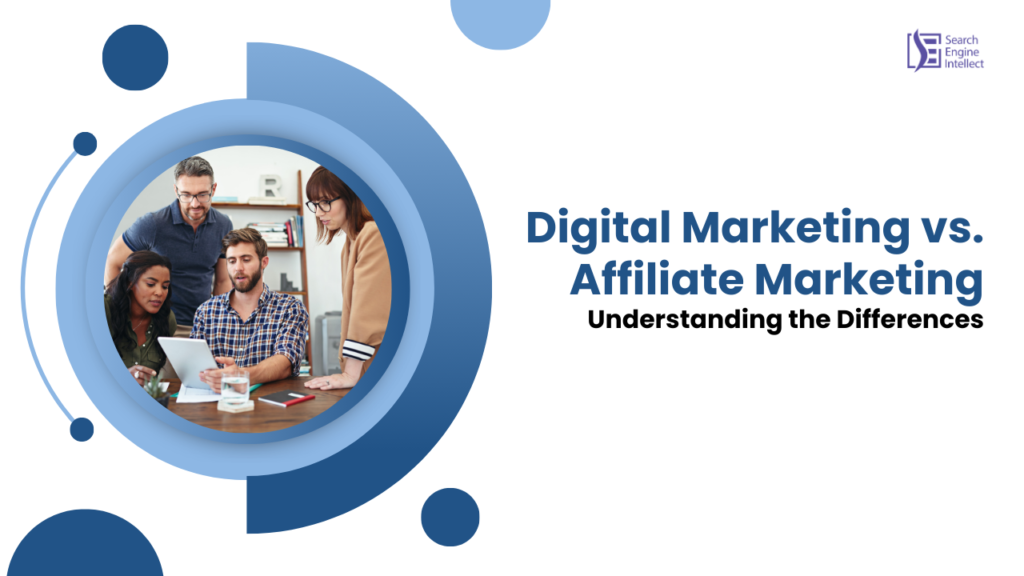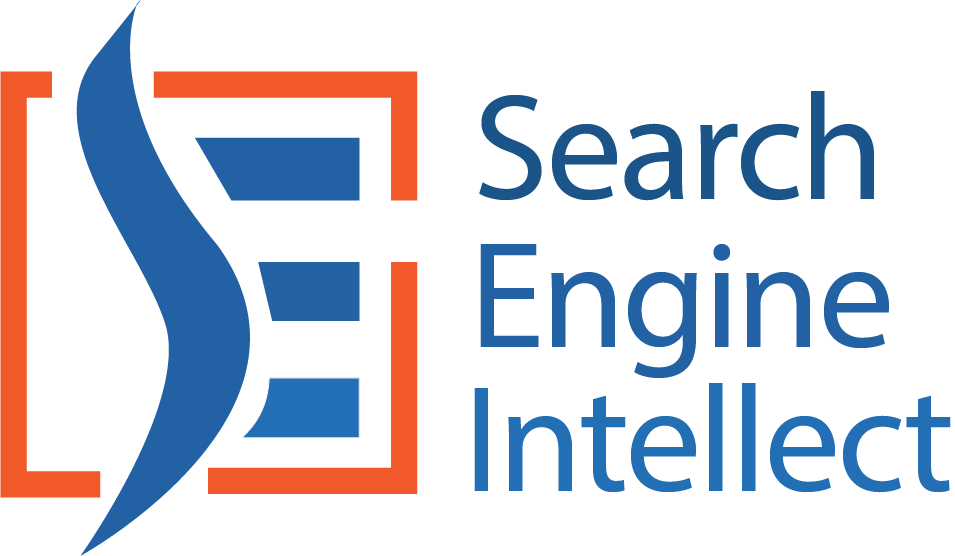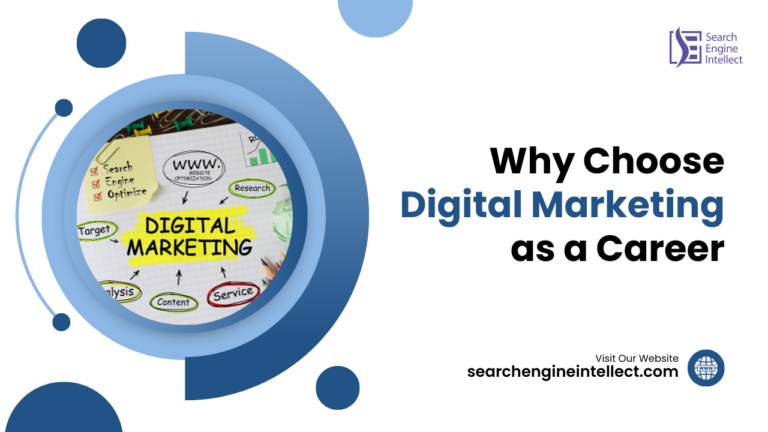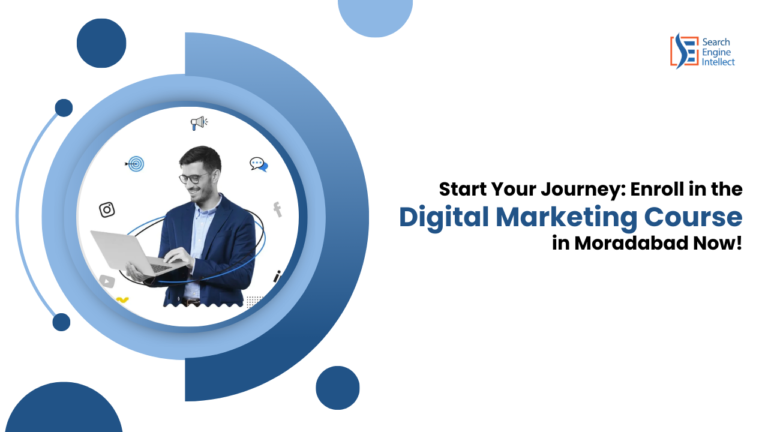Table of Contents
Book a Free Demo Class

Digital Marketing vs Affiliate Marketing: Key Differences, Benefits & Examples
In today’s digital age, many people face a tough decision: Digital Marketing vs Affiliate Marketing. Whether you’re a business owner, freelancer, or aspiring marketer, the choice can be overwhelming. Both fields promise financial growth, but they come with unique challenges and benefits. Here’s how this article will help you:
- Affiliate Marketing as a Subset of Digital Marketing: Understanding how affiliate marketing fits into the broader digital marketing spectrum.
- The Breadth of Digital Marketing: Exploring the various channels and strategies within digital marketing.
- Types of Affiliate Marketing: A look at the different forms of affiliate marketing and how they operate.
- The Synergy Between Affiliate and Digital Marketing: How these two strategies can be integrated for maximum effectiveness.
Stay with us as we explore each marketing method in detail and solve your dilemma!
Affiliate Marketing – A Subset of Digital Marketing
Affiliate marketing is a performance-based marketing strategy where individuals or companies (affiliates) promote products or services of another online business (product owners) in exchange for a commission on any resulting sales. This form of marketing has gained significant popularity due to its mutually beneficial arrangement for both parties involved.
Integration with Digital Marketing
Affiliate marketing relies heavily on digital marketing channels to promote products and services. These channels include:
- Websites: Affiliates use their websites to promote products through reviews, comparisons, and other content strategies.
- Social Media: Platforms like Instagram, Facebook, and Twitter are used to reach a broader audience and promote affiliate links.
- Email Marketing: Affiliates use email campaigns to promote products to their subscribers.
- Content Marketing: Creating valuable content such as blog posts, videos, and podcasts to attract and engage with potential customers.
Types of Affiliate Marketing
There are several types of affiliate marketing, including:
- Pay Per Sale (PPS): Affiliates earn a commission for each sale made through their referral link.
- Pay Per Lead (PPL): Affiliates earn a commission for each lead generated, such as a form submission or trial sign-up.
- Pay Per Click (PPC): Affiliates earn a commission for each click on their affiliate link, regardless of whether a sale is made.
- Recurring Commission: Affiliates earn a commission for each recurring payment made by the customer they referred.
- Two-Tier Affiliate Programs: Affiliates earn a commission for their own sales as well as for sales made by their sub-affiliates.
Benefits of Affiliate Marketing
- Cost-Effective: Businesses only pay for successful conversions, minimizing upfront costs.
- Increased Reach: Affiliates can reach a broader audience and promote products to their niche or targeted audiences.
- Passive Income: Affiliates can earn passive income by promoting products and services through their affiliate links.
Key Differences Between Affiliate and Digital Marketing
- Ownership: In affiliate marketing, affiliates promote other people’s products and services, while in digital marketing, businesses promote their own products and services.
- Income: Affiliate marketers earn a commission for each sale or lead generated, while digital marketers earn revenue directly from the sales of their products or services.
- Expertise: Affiliate marketers need to be knowledgeable about the products they promote, while digital marketers need a broader range of skills, including SEO, content marketing, and social media marketing.
By understanding the integration of affiliate marketing with digital marketing, businesses and affiliates can leverage these strategies to drive sales, generate online revenue, and build brand awareness.
The Breadth of Digital Marketing
Digital marketing is a comprehensive strategy that encompasses a wide range of tactics and channels to promote products and services online. It includes various techniques such as search engine optimization (SEO), content marketing, social media marketing, email marketing, pay-per-click (PPC) advertising, and more.
Key Differences
Unlike affiliate marketing, which primarily focuses on promoting other people’s products and services for a commission, digital marketing aims to build brand awareness, engage with potential customers, and drive conversions through various digital channels.
Components of Digital Marketing
- Search Engine Optimization (SEO): Optimizing websites and content to rank higher in search engine results pages (SERPs) to increase visibility and attract organic traffic.
- Content Marketing: Creating and distributing valuable, relevant, and consistent content to attract and retain a clearly defined audience.
- Social Media Marketing: Utilizing social media platforms like Facebook, Instagram, Twitter, and LinkedIn to engage with potential customers, share valuable content, and build brand awareness.
- Email Marketing: Directly communicating with subscribers and customers through targeted email campaigns to nurture leads, build relationships, and drive sales.
- Pay-Per-Click (PPC) Advertising: Displaying targeted advertisements to potential customers based on their search queries or browsing behavior, paying only when someone clicks on their ad.
- Online PR: Managing a business’s online reputation and media presence to maintain a positive brand image.
- Video Marketing: Using video content to engage with potential customers, build brand awareness, and drive conversions[.
- Mobile Marketing: Targeting customers through mobile devices using text messages, social media, emails, and mobile apps tailored to their geographic location or time.
Strategic Approach
Digital marketing involves a strategic approach to reaching an audience through various digital channels. It requires understanding the target audience, selecting the appropriate channels, and creating content that resonates with them.
Performance Metrics and Analytics
Digital marketing emphasizes tracking and analyzing performance metrics such as website traffic, click-through rates, conversion rates, and return on investment (ROI) to measure the effectiveness of campaigns and optimize strategies accordingly.
Integration with Affiliate Marketing
While digital marketing and affiliate marketing have distinct differences, they can be effectively combined to create powerful and comprehensive online marketing strategies. By integrating these two approaches, businesses can maximize their reach, engage with their target audiences more effectively, and drive sales through various digital channels and affiliate partnerships.
By understanding the breadth of digital marketing and its various components, businesses can create holistic marketing strategies that leverage multiple channels to achieve their online marketing goals.
What is Digital Marketing?
Digital marketing refers to the promotion and marketing of goods and services using digital channels such as the internet, mobile devices, social media platforms, search engines, email, and other online communication methods. It allows businesses to connect with current and prospective customers through a variety of digital platforms, enhancing their reach and engagement.
Key Components of Digital Marketing
- Search Engine Optimization (SEO): This involves optimizing a website to improve its visibility in search engine results pages (SERPs). Effective SEO strategies help attract organic traffic by ensuring that the website ranks higher for relevant keywords.
- Content Marketing: This strategy focuses on creating valuable, relevant content to attract and engage a target audience. Content can take various forms, including blog posts, videos, infographics, and podcasts, all aimed at providing useful information that encourages customer interaction.
- Social Media Marketing: Utilizing platforms like Facebook, Instagram, Twitter, and LinkedIn, businesses can engage with their audience, share content, and promote products. Social media marketing fosters direct communication and builds brand loyalty.
- Email Marketing: This involves sending targeted emails to nurture leads and maintain relationships with customers. Email marketing campaigns can include newsletters, promotional offers, and personalized messages aimed at driving conversions.
- Pay-Per-Click (PPC) Advertising: PPC is a model of online advertising where businesses pay for each click on their ads. This method is commonly used on platforms like Google Ads and social media, allowing for immediate visibility and traffic.
- Affiliate Marketing: In this performance-based model, affiliates earn commissions by promoting products or services from other companies. It leverages the reach of affiliates to drive sales, making it a cost-effective marketing strategy for businesses.
Also read: What is Digital Marketing: Everything You Need to Know
What is Affiliate Marketing?
Affiliate marketing is promoting another company’s product or service. You earn a commission when someone makes a purchase using your affiliate link. These commissions are typically a percentage of the purchase price or a set sum.
Key Components of Affiliate Marketing
The affiliate marketing process typically involves four key parties:
- The Merchant: This is the company or individual that creates and sells the product or service. Merchants can range from large corporations to small businesses.
- The Affiliate: Also known as the publisher, the affiliate promotes the merchant’s products through various channels, such as websites, blogs, social media, or email marketing. Affiliates use unique tracking links provided by the merchant to monitor their performance.
- The Consumer: The end-user who clicks on the affiliate’s link and makes a purchase. The consumer’s action is what triggers the commission payment to the affiliate.
- The Affiliate Network: While not always necessary, many affiliates work through networks that connect them to merchants. These networks provide tools for tracking, reporting, and payment processing.
Also read: Affiliate Marketing: What it is and How to Get Started
Differences Between Affiliate Marketing and Digital Marketing
| Parameter | Digital Marketing | Affiliate Marketing |
|---|---|---|
| Definition | A broad term encompassing various online marketing strategies to promote products or services. | A performance-based marketing model where affiliates earn commissions for promoting others’ products. |
| Ownership | The product owner conducts digital marketing to promote their own products or services. | Affiliates promote products they do not own, earning commissions for sales generated through their efforts. |
| Reach | Utilizes multiple digital channels and strategies to reach a wide audience. | Focuses on driving sales through affiliate links, often leveraging existing audiences of affiliates. |
| Competencies | Requires knowledge of SEO, social media, content marketing, and analytics. | Emphasizes relationship-building, persuasion skills, and understanding target audiences. |
| Goals | Aims to increase website traffic, brand recognition, and lead generation. | Primarily focused on earning commissions through sales conversions. |
| Components | Involves various elements, including product, digital channels, and customer engagement. | Consists of three main parts: the affiliate marketer, the customer, and the product owner. |
| Payment Structure | Businesses may invest in various advertising strategies, paying upfront for ads or campaigns. | Affiliates earn commissions only when a sale is made through their referral link, creating a performance-based model. |
Conclusion
In summary, while digital marketing and affiliate marketing share the common goal of driving sales and increasing brand awareness, they operate on different principles and strategies. Digital marketing encompasses a wide range of tactics to promote one’s own products, whereas affiliate marketing focuses on earning commissions through promoting others’ products. Understanding these differences can help you choose the right approach for your business goals and maximize your online marketing efforts.ng affiliate marketing efforts, this article will equip you with the knowledge you need.



